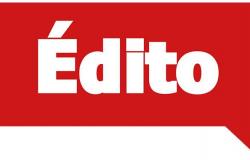Public transport no longer wants cash.Image: watson
A National Bank survey shows that cash is still accepted almost everywhere. But if the catering sector indicates that it wants to rely more on cash in the future, public transport plans to replace it by 2035.
Pascal Michel / ch media
Swiss companies attach great importance to cash. Cash therefore remains the most accepted means of payment, as shown by a new survey by the Swiss National Bank (SNB) of around 770 companies. Indeed, 98% of them said they accepted coins and notes.
These companies do it above all because their customers want it. And because cash is resistant to the crisis and offers a “cheaper alternative to cashless payment methods”. An allusion to the sometimes high fees for card payments. However, the companies involved overlook the fact that handling cash also entails costs, which are often not directly measured.
While businesses are happy with cash, there are considerable differences between sectors. Thus, according to the investigation, a fifth of restaurants and retailers want to favor the use of cashespecially due to unpleasant card fees.
Public transport sees things differently. Only just over 40% of the players surveyed in this sector say they are satisfied. IThey mainly deplore the fact that the repatriation of cash is too complicated and expensive. Another negative point comes up regularly:
“The services of banks and cash carriers are too expensive and there are too few ATMs and counters”
As a result, half of Swiss public transport companies plan to favor digital payments in the coming years and limit the acceptance of cash.
“A commercial absurdity”
Projects in the transport sector are not new: these measures have already been announced a long time ago. In an interview with CH Media, René Schmied, then head of strategy at the sectoral organization Alliance Swisspass, explained almost two years ago:
“Handling cash is very complicated and expensive. Of course, we are not going to eliminate existing vending machines overnight. But in 2035, few will still use cash.
Within ten years, transport companies only want to sell digital ticketsor almost.
PostBus chief Christian Plüss also said the company is preparing to move away from cash.
“Cash is a burden on drivers, on the system, and the revenue we get from cash tickets on buses is very low. Commercially, it’s actually nonsense.
Christian Plüss
It remains to be seen whether companies, which nevertheless receive massive amounts of money from the state coffers, will one day be able to do without cash altogether. Recently, the Council of States approved, after the National Council, a motion from Zug National Councilor Manuela Weichelt (Greens).
This asks the Federal Council to develop a project or other appropriate measures so that subsidized transport companies are forced to accept cash. For Manuela Weichelt, payment by prepaid card would also be possible. The government must now develop a solution.
Counter-proposal to the cash initiative
On Tuesday, the National Council’s Economic Commission also looked into cash, more specifically the “Cash is Freedom” initiative. This requires that coins or banknotes always remain available in sufficient quantities.
The majority of the Economics Committee voted in favor of the Federal Council’s direct counter-proposal. This plans to raise the current provisions to the constitutional level. Commission members rejected a proposal that called for cash to be accepted “by default” as a means of payment.
This is the point that is currently generating the most heated debate: is there a legal obligation for businesses to accept cash? The answer is: no. This falls under operative law. New SNB President Martin Schlegel explained to CH Media what this means:
“A business is not obliged to accept cash if it declares this clearly visible to customers. In the absence of such indication, the customer has the right to pay in cash”
A popular initiative to impose a stricter acceptance requirement failed at the signature collection stage at the end of September.
The National Bank concludes its investigation by explaining that the mentioned critical points should be addressed “by all participants in the cash market”.
“Above all, the infrastructure must be designed in such a way that cash services are easily accessible to businesses and cost-effective. This is how the wide acceptance of cash can be maintained.”
Translated and adapted by Tanja Maeder and sia.






